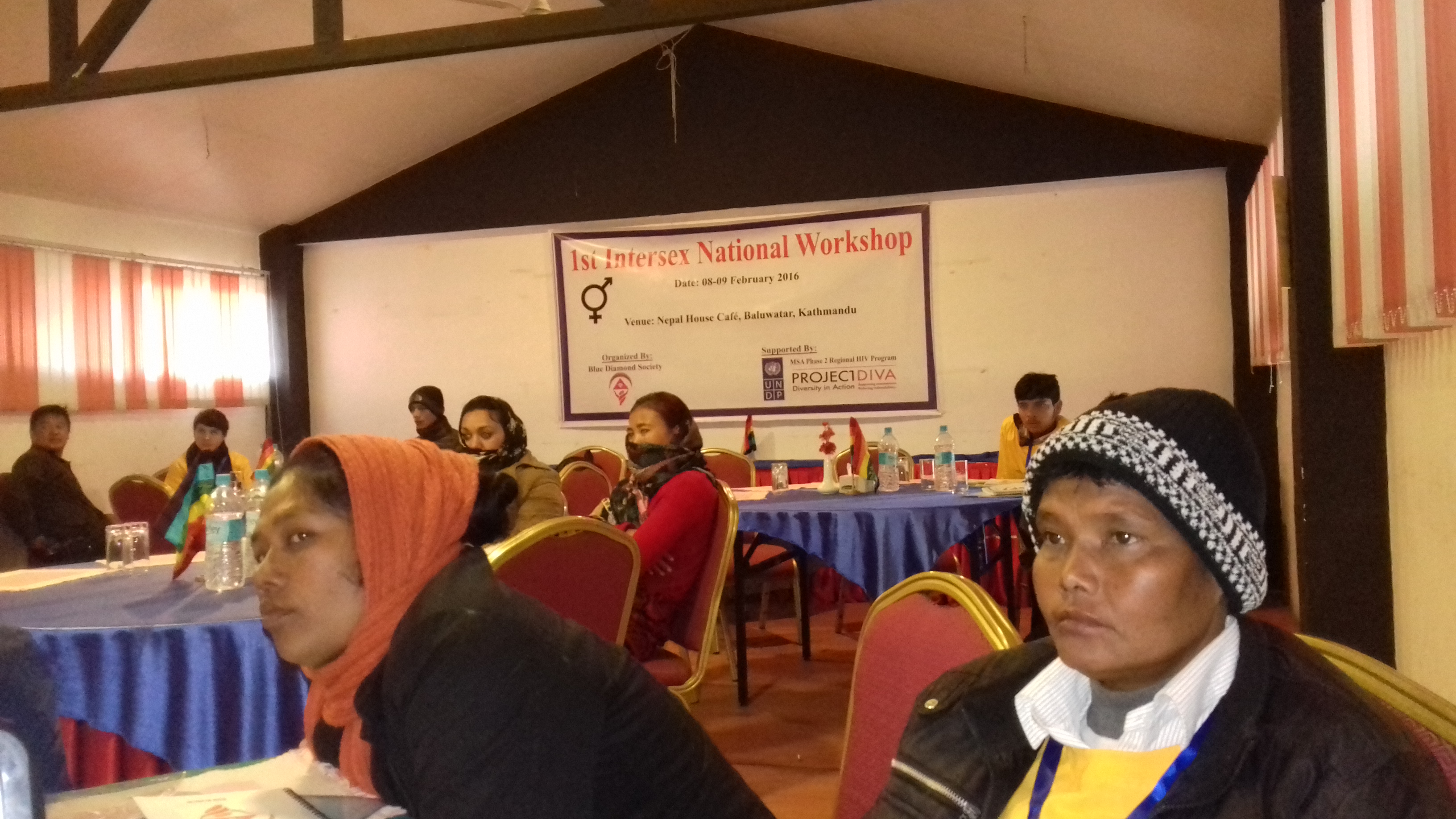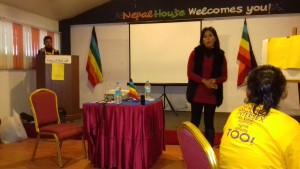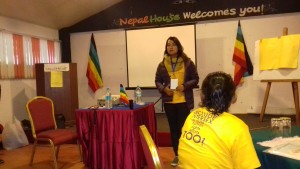
Kathmandu (Pahichan) February 9 – Blue Diamond Society has organized the first national conference of inter-sex people with a purpose of preparing policy and plan of this community. Chairman of BDS said the aim of such conference is to highlight the concerns and problems of this community.
“The document prepared by conference would be a guiding policy to move ahead,” said Chairman of BDS Pinki Gurung asking participants to express their views without any hesitation.
Executive Director of Society Manisha Dhakal said people with inter-sex should clearly speak about their identity. On the basis of the report, according to Dhakal, BDS will prepare future strategy. “BDS is ready to support people with their identity without any hesitation, “Dhakal said.
 Deputy Director Parshuram Rai said it is common agenda of marginalized community as people with inter-sex are living with discrimination. Ishan Regmi who is working in Norwegian project said families are forcing people with inter-sex for the surgery which is brining complications in their health. Regmi said as former lawmaker Sunil Babu Pant included this community it has been possible to hold such conference.
Deputy Director Parshuram Rai said it is common agenda of marginalized community as people with inter-sex are living with discrimination. Ishan Regmi who is working in Norwegian project said families are forcing people with inter-sex for the surgery which is brining complications in their health. Regmi said as former lawmaker Sunil Babu Pant included this community it has been possible to hold such conference.
Registration of sex at birth: Nepal legally require births to be certified and registered as male or female. This puts pressure on those concerned with registration, particularly parents and health professionals to choose the sex of the new-born child and to intervene medically. However, at least four Member States allow birth certificates to be registered as sex neutral and two allow birth certificates to be issued without a sex identifier. Gender markers in identity documents and birth registries should therefore be reviewed to better protect intersex people.
Medical treatment of intersex children: In south Asia, medical interventions are carried out on intersex children to impose a sex/gender on them. Withe parents give misinformed consent. However, involving children in such decisions is a grey area as factors such as age determine when the child can decide, when parents should decide and opens up the question what happens when there are disagreements between the intersex child and parents over the decisions made. It should also be noted that non-medically essential surgery without consent is viewed by international law as inhumane, cruel and degrading. Member States should therefore avoid non-consensual ‘sex-correcting’ medical treatments for intersex people.
Protection from discrimination: Intersex discrimination is better covered by sex/gender discrimination rather than discrimination on the basis of sexual orientation as it is the determination of the sex/gender that gives rise to inequalities. Given intersex covers a large variation of sex characteristics, cases will probably be approached differently, even within the same legal system, in the absence of specific protective legislation. Legal and medical professionals should therefore be made aware of the fundamental rights of intersex people, particularly children.
Copyright © All right reserved to pahichan.com Site By: Sobij.